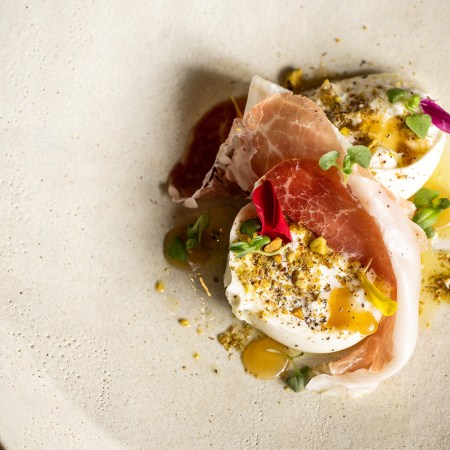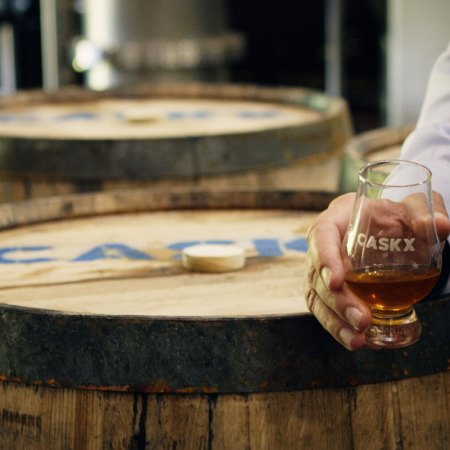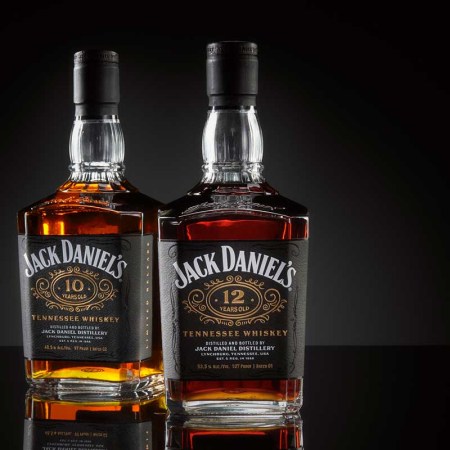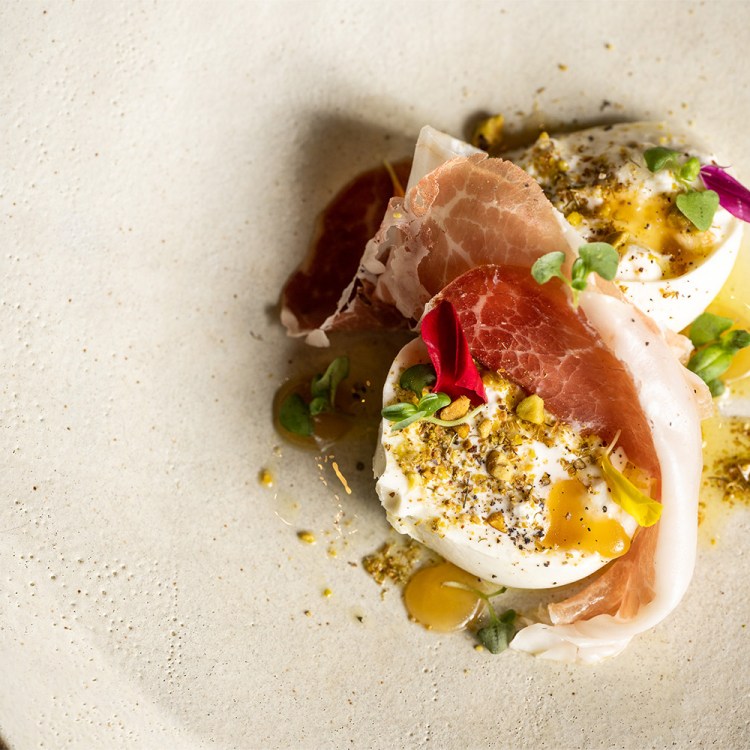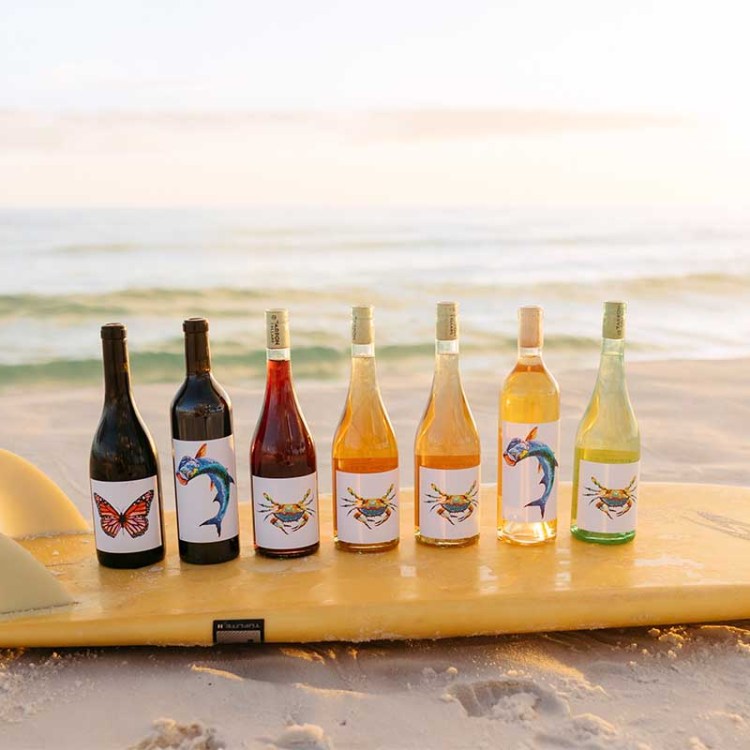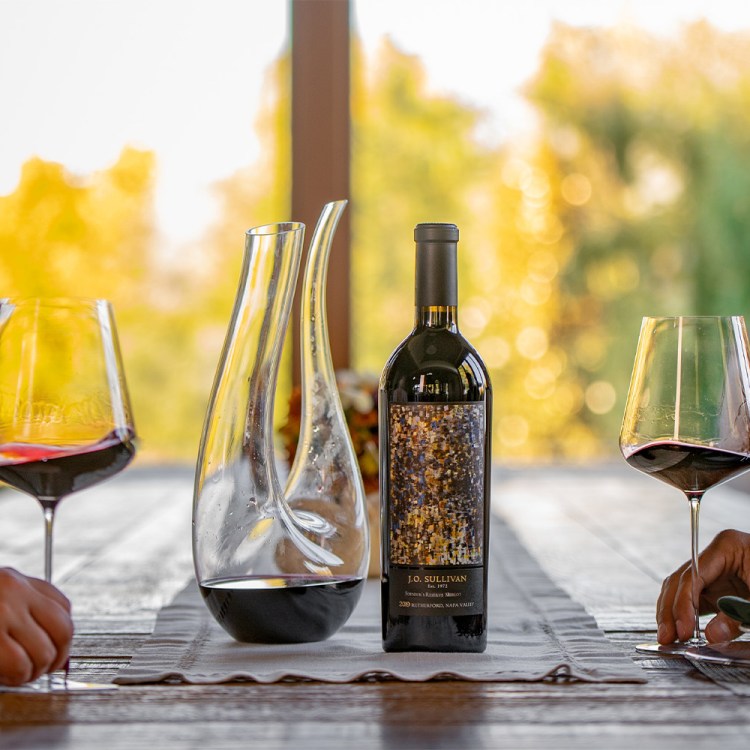Endless West co-founder and chief product officer Josh Decolongon has built his career around the subtleties of taste. A certified sommelier since 2014, he now spends his days constructing whiskey in a lab from the molecular level up.
The brand’s debut product is Glyph — as our editor Kirk Miller described it, “a lab-made whiskey that claims to replicate the flavors and aromas of a spirit that’s been aging in barrels … without the actual aging or barreling.”
Here, Decolongon shares the tools he uses every day to get the job done, from pro-level labware (try a pipette for all your most finely tuned cocktail needs) to his favorite food-and-beverage books to San Francisco’s superior palate cleansers (hint: it’s not a sourdough). His picks are best enjoyed with a glass of lab-made Glyph in hand, ideally poured into Decolongon’s preferred tulip-shaped ISO tasting glass.

Eppendorf pipettes and other labware
“A lot of what we do in the lab involves creating iterations of whiskey, and we do that by taking extracts we find in nature and combining them, molecule by molecule. I use lots of different labware — anything from pipettes and beakers to test tubes and scales — but what I use most are pipettes, which are used to measure liquids very precisely — down to the microliter.
For example, methoxypyrazines are a class of molecules found in many foodstuffs, from green peppers to sauvignon blanc wines. They’re one of the molecules that give sauvignon blancs that green pepper characteristic. We only need a very, very, very tiny amount because even tiny amounts have a big impact. When we’re creating something molecule by molecule, you want to be really precise.”
Books on cocktails and food
“Liquid Intelligence looks at cocktails from a scientific perspective. That’s definitely one of my favorites. In Spice, Stuart Farrimond breaks down different spices. I think it’s really interesting that a lot of spices have more similarities than people might expect, even down to their molecular components, and there’s an argument that that’s why certain spices go together. And then Taste Buds and Molecules — [similarly,] it looks at food-and-wine pairings through a molecular lens, to see why certain things work together.”
A Blank Moleskine notebook and a Pilot G2 pen
“Being in the Bay Area, everything’s digital, and every now and again, I’ll try to take my tasting notes on my phone. But I prefer using my blank Moleskine notebook and a Pilot G2 pen. On a good day, I’ll taste maybe 50 samples, and I’m recording everything: color, aroma, palette. I also have to analyze certain things, like sweetness, body and acidity. To keep track of that digitally is just super difficult.
Sometimes when I’m lost in thought, I’ll come up with a cocktail idea and a way to present it; having that paper, I’m able to record what I’m thinking. For example, I’ve been trying to come up with a cocktail that combines blueberry soda, chocolate bitters and a little bit of rum. I wasn’t sure if I should serve it on ice, or what the garnish was. Should it be in a flask? But I can capture that in my journal.”
Baguette from Neighbor Bakehouse
“Like I said, I’ll taste at least 50 samples on a good day, and cleaning my palate in the middle of these tastings is essential. Your palate can get tired, and you want to reinvigorate it without introducing a new flavor. An example of a bad palate cleanser would be chocolate: it’s sweet, it can be oily, and it’s mouth-coating. Soda’s another bad example: it’s acidic and it can be a different temperature. Instead, I’ll drink room-temperature tap water.
And then neutral foods are really good. There’s this great bakery on the same block as us, and we’ll get their baguettes. You wouldn’t want something like a sourdough, but nice and neutral palate cleansers don’t have to be boring. Crackers work as well. Pretzels, too, as long as they’re on the lower end of the salt spectrum.”

“I’m really into different ingredients right now — chocolate bitters is something I’ve had a recent obsession with, and in particular chocolate bitters and blueberry. [This brand] is environmentally and socially responsible in sourcing their cocoa. You get this pure chocolate favor and a little of the oak characteristic.”
Calamansi citrus (aka Philippine lime) from Manila Oriental Supermarket
“Calamansi is a citrus native to the Philippines, where my parents are from. They’re distinct, kind of between an orange and a lime. It’s often used as a garnish in a lot of Filipino dishes — you’d get a squeeze of calamansi on our version of noodles. Right now, I’m trying to combine calamansi with grapefruit and mezcal, and I’m also trying to figure out how to round it out with our whiskey. My go-to place for calamansi and other Asian ingredients that you don’t find elsewhere is in the Manila Oriental Market in Excelsior.”
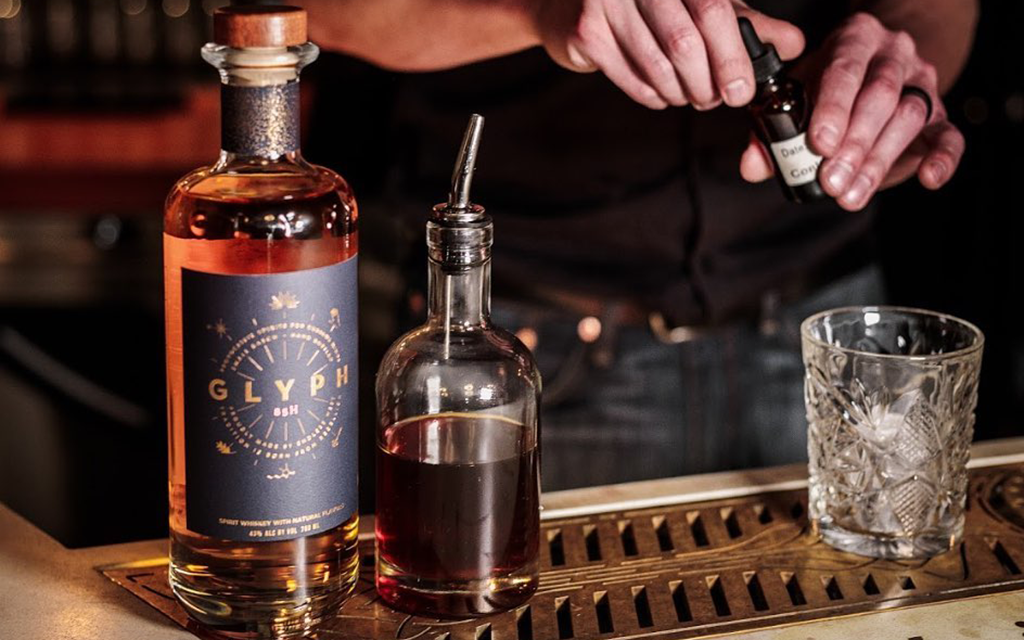
Quality eyewear is essential. Not only for day-to-day office needs, but because a large part of tasting whiskey — or wine or other beverages — is being able to analyze the color. In whiskey, a darker color might indicate that the whiskey has spent more time in oak barrels; if a whiskey has been filtered, it’ll be cloudier. Viscosity often indicates the alcohol level; sometimes we refer to this as “legs,” which you can see when you swirl a whiskey. JINS is a super-tech-savvy company that makes glasses quickly. I like these, with clear frames.”
“My day-to-day involves a lot of food and drink, so exercise is essential. I walk three miles to work every day, rain or shine. Besides my daily commute, I have to travel from the office space to the lab to the production space. It was hard to find a pair of shoes that worked — these are my go-tos. They’re stylish, they’re durable and they transfer easily from day to night.”
This article was featured in the InsideHook newsletter. Sign up now.

